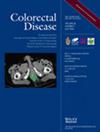摘要
目的直肠癌的治疗可能会给患者留下永久性的造口或肠功能障碍。在这项工作中,我们旨在研究直肠癌患者和非直肠癌患者对治疗结果的偏好。方法采用离散选择实验,对372例无造口、269例有造口和204例无造口的直肠癌患者进行了癌症复发风险、有无造口和肠功能障碍对治疗选择的影响。结果各组治疗偏好预测因子差异有统计学意义(p < 0.0001)。stoma-naïve组更重视避免造口,而功能优越组更重视避免肠功能障碍。降低复发风险在两组中被同等重视。结论有造口或肠功能障碍经历的患者对这些治疗结果的耐受性较高。听取生活在不同治疗结果中的患者的意见可以帮助新诊断的患者做好准备,并在患者有选择的情况下促进知情决策。

Aim
Treatment for rectal cancer can leave patients with a permanent stoma or bowel dysfunction. In this work we aimed to examine preferences for treatment outcomes among people with and without rectal cancer.
Method
Our discrete choice experiment examined the effect of risk of cancer recurrence, presence of a stoma and bowel dysfunction on treatment preferences in 372 rectal cancer patients without a stoma, 269 with a stoma and 204 people without cancer.
Results
Predictors of treatment preferences differed significantly between all groups (p < 0.0001). Avoiding a stoma was more important to stoma-naïve groups, while avoiding bowel dysfunction was more important to those with superior function. Reducing the risk of recurrence was valued highly, and equally, across the groups.
Conclusion
Experience of a stoma or bowel dysfunction resulted in higher tolerance of those treatment outcomes. Hearing from patients living with different treatment outcomes could help prepare newly diagnosed patients, and facilitate informed decision-making where patients have a choice.

 求助内容:
求助内容: 应助结果提醒方式:
应助结果提醒方式:


